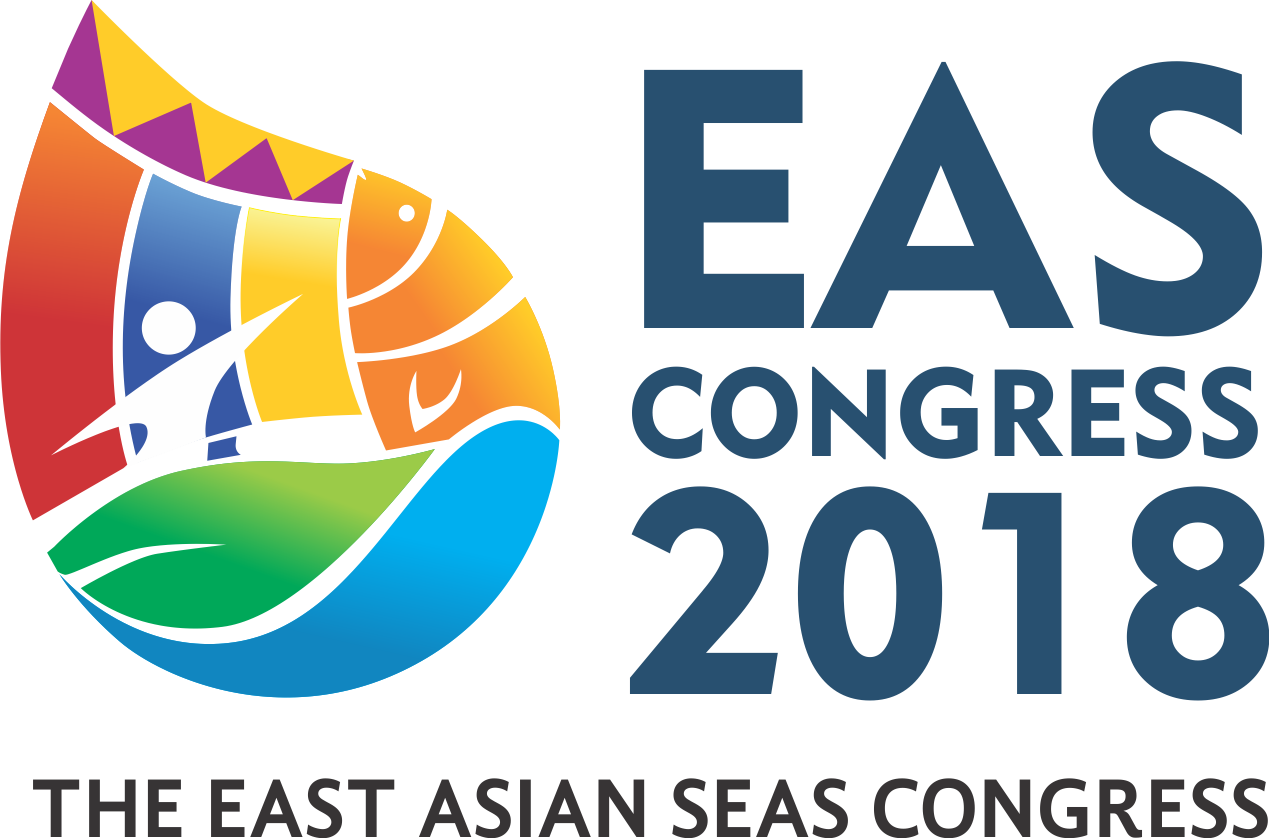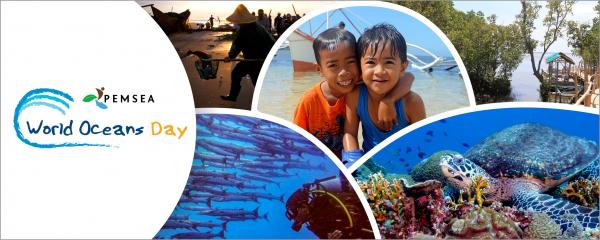MANILA, PHILIPPINES—On June 8, international celebrations will mark World Oceans Day, an annual commemoration to honor, protect, conserve and sustain the world’s oceans. PEMSEA (Partnerships in Environmental Management for the Seas of East Asia) is one of the many organizations supporting global efforts towards sustainable oceans. PEMSEA’s interest in investing its technical resources and energy towards safeguarding the world’s oceans lies in its firm belief that oceans are vital to the economy and our way of life.
Speaking on the ecological and economic benefits of a healthy ocean, PEMSEA Executive Director Aimee T. Gonzales said, “A healthy ocean provides food and jobs. It provides for everyone’s needs, not just for those living on the coasts, but also for the future.”
A soon to be published PEMSEA report on the State of Oceans and Coasts indicates that the ocean economy of nine Asian countries is estimated to be worth around US$1.5 trillion, with over 50 million people in China, Indonesia, the Philippines, Vietnam and Malaysia employed in ocean industries such as fisheries, marine tourism and shipping.
However, the ocean is facing an onslaught of threats from various sources that include: climate change, pollution, habitat loss and destructive fishing. In the East Asian region, evidence of climate change impacts could be seen in increasing mean temperatures; a downtrend in rainfall; sea levels rising at 1-3 millimeters per year; and increased frequency of heat waves, droughts, floods and tropical cyclones that cause extensive damage to property, assets and human life. Due to these factors, poor and vulnerable coastal communities face disproportionate losses from coastal and marine degradation due to their high dependence on ocean resources.
In terms of marine pollution, six countries in East Asia are among the top 10 contributors to the staggering eight million tons of plastic trash leaking into the global oceans annually. The Philippines is 3rd on the list, behind China and Indonesia. The amount of marine pollution caused by plastic trash is predicted to increase tenfold by 2025, unless waste management practices are improved.
What we can do
Gonzales urges change to start within PEMSEA’s expanding family and network by outlining some practical steps staff can do collectively and individually to protect our oceans. These include a few simple things such as:
- Get involved in World Oceans Day by organizing or participating in an event near you.
- Set a good example by carrying a reusable water bottle, avoiding the use of plastic straws, storing food in reusable or non-disposable containers or bringing your own reusable bag when shopping. In addition, don’t purchase products that harm the marine ecosystem such as coral, turtle products, seahorses and seashells.
- Be a responsible tourist. Don’t take anything nor leave anything, and don’t litter.
- Stay informed and educate yourself on the latest news, tools and innovative approaches to protect the ocean as a vital resource.
For 25 years, PEMSEA has worked tirelessly to develop solutions for healthy and resilient oceans, coasts, communities and economies as laid out in the Sustainable Development Strategy for the Seas of East Asia (SDS-SEA). PEMSEA has also long supported the preservation of vitally important ecosystems within the context of integrated coastal management (ICM) and coral reefs that are present within many of its ICM-supported sites.
Gonzales urged everyone to join the East Asian Seas Congress on 27-30 November, 2018 in Iloilo City, Philippines which provides good opportunity for building and strengthening partnerships, facilitating learning/knowledge exchange, and contributing to innovation and transformational change for the sustainable development of the East Asian Seas region.

